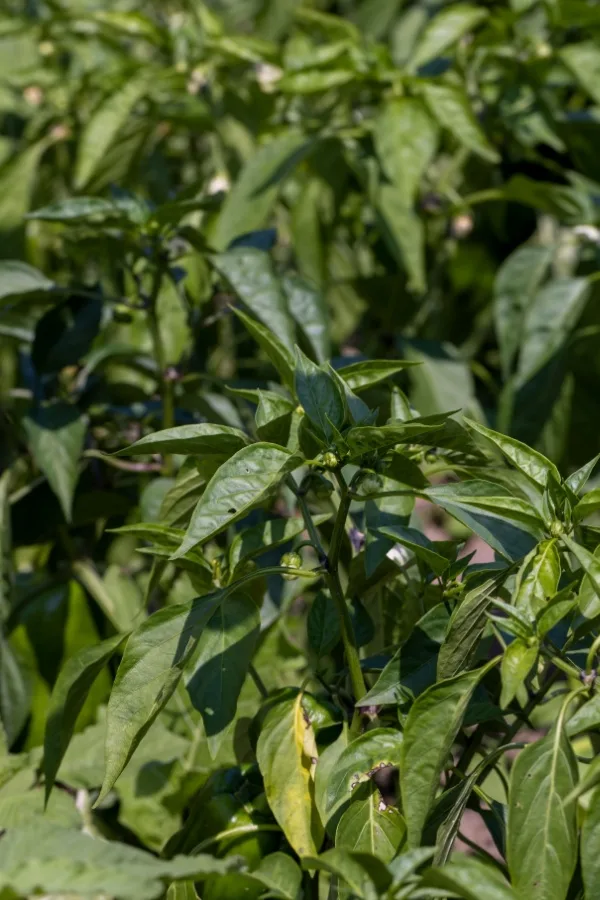Organic Vs. Synthetic Fertilizers: Which Is Best for Nurturing Healthy Pepper Plants?
In the world of nurturing healthy pepper plants, the choice between synthetic and organic plant foods stands as a crucial choice with significant implications. While both options purpose to give essential nutrients to sustain plant growth, the nuances of their influence on the dirt, plant health, and the setting stimulate an argument that echoes throughout the horticulture area. Comprehending the distinct benefits and prospective pitfalls of each plant food type is essential for pepper farmers looking for to optimize their yields while maintaining a lasting and eco-conscious strategy.
Benefits of Organic Plant Foods
Organic fertilizers offer an environmentally-friendly and sustainable technique to nourishing pepper plants, giving necessary nutrients without using artificial chemicals. These natural plant foods are originated from natural sources such as compost, manure, bone dish, and seaweed, advertising soil wellness and biodiversity. Unlike synthetic plant foods, organic choices launch nutrients slowly, making certain a balanced and steady supply for pepper plants to prosper.
One substantial benefit of natural plant foods is their ability to enhance dirt structure and water retention. By improving dirt health, natural plant foods promote helpful microbial task, which aids in nutrient uptake by pepper plants. Furthermore, natural plant foods decrease the danger of chemical run-off, shielding water sources from air pollution and safeguarding the atmosphere.
Moreover, natural plant foods add to long-term soil fertility by promoting the development of valuable soil microorganisms. These organisms help break down raw material, launching nutrients in a form that is quickly available to pepper plants. best fertilizers for peppers. By fostering a healthy and balanced dirt ecosystem, organic fertilizers support sustainable pepper cultivation practices that benefit both plants and the atmosphere
Downsides of Artificial Plant Foods
Artificial plant foods, in contrast to their natural equivalents, present different drawbacks when used to nurture pepper plants, affecting both plant health and ecological sustainability. One significant disadvantage of synthetic plant foods is their propensity to leach nutrients from the soil promptly.
In addition, the overuse of synthetic fertilizers can add to water contamination. Excess fertilizers not soaked up by plants can get rid of into water bodies, bring about eutrophication, where algae blossoms diminish oxygen levels in the water, damaging aquatic life. In addition, synthetic plant foods are normally stemmed from non-renewable sources, such as nonrenewable fuel sources, contributing to carbon emissions and ecological degradation throughout their production.
Nutrient Absorption Comparison
Reliable nutrient absorption plays a critical role in the general health and growth of pepper plants. When contrasting artificial and organic fertilizers in regards to nutrient absorption, natural fertilizers have the benefit of giving a more well balanced and slow-release source of nutrients (best fertilizers for peppers). Organic plant foods contain a range of macro and trace elements that are not only useful for the plants however also advertise healthy soil microbial task, which assists in nutrient uptake. On the other hand, synthetic fertilizers usually provide a quick release of nutrients, which can cause seeping and drainage, resulting in lower nutrient absorption rates by the plants.
In addition, natural fertilizers boost soil structure and water retention ability, enabling pepper plants to accessibility nutrients extra successfully. This improved dirt quality helps with root development, enabling better nutrient absorption. Artificial plant foods, although originally improving plant click this link development due to their high nutrient focus, might impede long-lasting nutrient absorption by degrading soil health with time.
Ecological Effect Considerations

On the various other hand, synthetic plant foods, although commonly even more instantly available and focused to plants, can have destructive impacts on the setting otherwise applied appropriately (best fertilizers for peppers). Their manufacturing requires high power inputs, resulting in greenhouse gas discharges and adding to climate modification. The drainage of excess artificial fertilizers can pollute water resources, leading to eutrophication and harming water ecosystems.
Ideal Fertilizer Practices for Peppers
When feeding pepper plants, optimizing nutrient uptake and reducing environmental effect are crucial factors to consider. To achieve this, it is necessary to comply with ideal plant food techniques tailored to the browse around this web-site specific needs of pepper plants. One vital technique is to perform a soil test before applying any fertilizers. This test can identify the pH level of the soil and identify any nutrient deficiencies, directing you in choosing the most appropriate fertilizer formulation.
One more crucial method is to fertilize pepper plants at the correct time. Generally, peppers take advantage of obtaining plant food at planting and afterwards again when they start to blossom. Over-fertilizing can cause nutrition imbalances and damage the plants, so it is essential to comply with suggested application rates.
In addition, selecting a well balanced fertilizer with an NPK proportion that suits pepper plants' demands is basic. Eventually, combining artificial and natural fertilizers deliberately can assist support healthy and balanced pepper plants while reducing ecological effect.
Verdict

Organic fertilizers use an environmentally-friendly and sustainable method to nourishing pepper plants, supplying essential nutrients without the use of artificial chemicals. Unlike artificial plant foods, organic choices release nutrients gradually, ensuring a stable and well balanced supply for pepper plants to thrive.
Synthetic plant foods, in comparison to their organic equivalents, position numerous negative aspects when utilized to nourish pepper plants, influencing both plant wellness and ecological sustainability. When contrasting synthetic and organic fertilizers in terms of nutrient absorption, organic fertilizers have the advantage of supplying an extra well balanced and slow-release resource of More hints nutrients.In addition, natural plant foods boost dirt framework and water retention ability, permitting pepper plants to accessibility nutrients a lot more efficiently.
Comments on “Best Fertilizers for Peppers: Make The Most Of Plant Health and Yield”